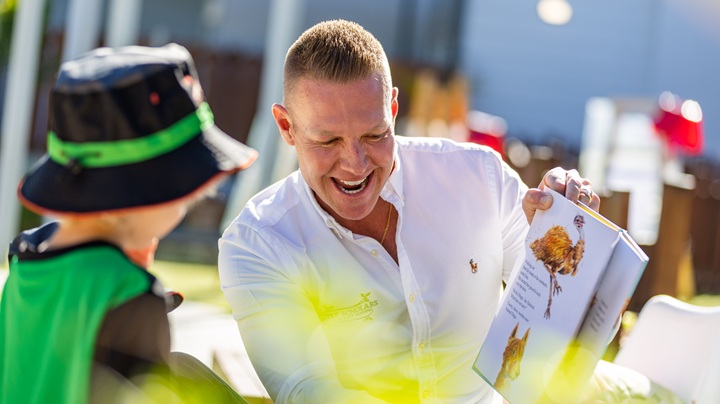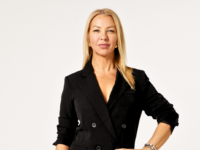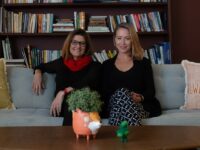Jae Fraser started the Little Scholars School of Early Learning with a mission to foster the growth of children into developing their full potential through what is called “intentional teaching.” We talk to Jae to learn more about this concept and how it has helped Little Scholars stand out in the early education space.
ISB: How did you become inspired to start a school like Little Scholars?
JF: I began my career as a wide‑eyed trainee, eventually moving through many different roles as an Early Childhood Educator and then completed my Bachelor of Education and into classroom teaching. I kept bumping up against the same frustration: too many services were built around convenience for adults rather than curiosity for children. One night, I scribbled a dream in my notebook: “Create a place where childhood is treasured, families feel wrapped in support, and educators are celebrated as professionals.” That scribble became Little Scholars School of Early Learning. I wanted to prove that a purpose‑built early‑learning environment, led by qualified teachers and guided by research, could give every child – regardless of postcode – the best start in life. I wanted to create an Early Learning place that no one had seen before.
ISB: What is the “intentional teaching” that Little Scholars espouses and makes it different from the education offered by other schools?
JF: Intentional teaching means nothing is left to chance. Our educators observe, question, and extend children’s thinking with purposeful interactions – never a worksheet in sight. If a group of three‑year‑olds spends the morning building a “rocket” from loose parts, our teachers won’t just applaud the construction. They’ll introduce vocabulary about force and gravity, invite the children to measure distance travelled, and perhaps video‑call an astronaut. The play remains child‑led, but the learning is expertly scaffolded. We also embed our four company pillars – Learn, Grow, Inspire, and Contribute – into every program, so children grow as capable learners and compassionate citizens.
ISB: Can you tell us more about the non‑contact leadership setup in the school and how this form of leadership contributed to its growth?
JF: At each campus, we invest in a full leadership team – Campus Manager, 2IC, Administration Support and Educational Leader – who spend the bulk of their week off the floor. That means they’re not counted in educator‑to‑child ratios and can focus on coaching, curriculum reflection, family partnerships and quality assurance. The ripple effect is enormous: educators receive real‑time mentoring instead of once‑a‑year appraisals; families have a dedicated contact who isn’t juggling nappies mid‑conversation; and compliance is proactive, not reactive. Most importantly, our leaders can innovate – trialing bush‑kindy programs, action research or sustainability projects – because they’re not running on empty. That strategic headspace has fuelled our growth from one campus to seventeen while keeping every service rated as Meeting or Exceeding the National Quality Standard.
ISB: What was the most challenging aspect of running such a school and how did youovercome it?
JF: Keeping pace with the ever‑rising expectations of families and communities – who quite rightly want rich learning, gourmet nutrition, and instant communication – while safeguarding our educators from burnout has been the toughest balancing act. Quality early childhood education and care costs money and energy, yet both are finite. I soon realised we couldn’t meet new demands by simply asking teachers and educators to “do more”; we had to work smarter. By designing systems that lift with our people rather than on them, we’ve turned a potential pressure cooker into a virtuous cycle of high expectations, high support, and high impact.
ISB: What is your vision for Little Scholars in the next couple of years?
JF: Growth for us isn’t about pinning more dots on a map; it’s about deepening impact. Over the next two years we’ll expand our Nature Play and Bush, Beach & Pram Kindy curriculum across every campus. As well as design and Create a Virtual Field Trip Program, using VR technology to create captivating and immersive educational experiences that foster a love of learning. This will provide children with virtual access to a variety of environments and experiences that they might not be able to explore in real life. We also want to continue to drive our scholarship pathways through The Fraser Foundation, conduct more action research projects involving all stakeholders, designed to improve everyday practice for children, families, and educators, and expand on our Family Time program to give families more quality back with their children.If we can help lift the bar for the whole sector, not just Little Scholars, we’ll call that success.\
ISB: If an aspiring entrepreneur sought your advice on realising their business idea, whatwould that be?
JF: Start with why and let it guide every decision – especially the tough ones. Surround yourself with people who are smarter than you, then listen to them. Build systems before you think you need them; they’ll save you when growth comes faster than expected. Finally, protect your passion: running a business is a marathon, not a sprint, and children (or customers) deserve a leader who still has spark in their eyes at kilometre forty‑two. Never apologise for having high standards, life can’t rise any higher than the standards you set and remember goals are designed to be smashed.
















